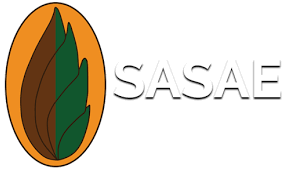The Influence of Budget Allocation to Implement the Policy of Extension and Advisory Services in South Africa
DOI:
https://doi.org/10.17159/2413-3221/2022/v50n1a14199Keywords:
Budget, Expenditure, Extension Practitioner, Agriculture, PolicyAbstract
Extension support is viewed as an enabler of food security. However, the literature reveals that extension within the public sector in South Africa is not yet geared to satisfy the needs of resource-poor smallholder producers to break away from poverty and food insecurity. This paper is aimed at reviewing budget allocation and public expenditure on agricultural extension support services to provide evidence-based recommendations to inform the implementation of the national policy on extension and advisory services. The study was conducted using budget allocation and expenditure data collected through a survey questionnaire directed at nine provincial departments of agriculture. The problem investigated was to establish whether the budget allocated to provincial extension services would be sufficient to implement the extension policy. Data analysis employed descriptive statistics including t-tests of differences in means. The study has delivered several findings: a). The budget execution rates were high for both the extension practitioners and the farmer programmes, with budget execution for farmer programmes being better than that for extension practitioners. b). The budget trends indicate an efficient system of budget execution for the benefit of the farmers. c). There were statistically significant differences between mean budget allocation for extension practitioners and farmer programmes. d). It was further found that the differences between the mean expenditure on extension practitioners and mean expenditure on farmer programmes were statistically significant. e). Consistent with budget allocation, mean expenditure on farmer programmes was higher than mean expenditure on extension practitioners leading to the conclusion that farmer programmes spent significantly higher than extension practitioners in the five financial years. f). On the other hand, it was found that the cost of implementing the newly developed national policy on extension and advisory services was found to be greater than the current budget allocation. The paper concluded that the budget allocation was insufficient, yet farmers received value for money.
Downloads
References
CENTRE FOR DEVELOPMENT AND ENTERPRISE (CDE)., 2008. Land reform in South Africa: Getting back on track, Research Report No. 16.
COUSINS, B., 2009. Land reform in post-apartheid South Africa: A disappointing harvest. Pretoria: Government Printers.
DEPARTMENT OF AGRICULTURE (DoA)., 2005. Norms and Standards for Extension and Advisory Services in Agriculture. Pretoria: Government Printers.
DEPARTMENT OF AGRICULTURE, FORESTRY & FISHERIES (DAFF)., 2011. National Framework for Extension Recovery Plan. Pretoria: Government Printers.
DEPARTMENT OF ECONOMIC DEVELOPMENT (DED)., 2010. The New Growth Path: The Framework. Pretoria: Government Printers.
GABATHULER, E., BACHMANN, F. & KLAY, A., 2011. Reshaping Rural Extension: Learning for sustainability: An integrative and learning-based advisory approach for rural extension with small-scale farmers. University of Bern: Margraf Publishers GmbH.
HAYWARD, J. & BOTHA, C., 1995. Extension, training and research. In: R. Singini and J. Van Rooyen (Eds.), Serving small-scale farmers: An evaluation of DBSA’s farmer support programmes. Halfway House: DBSA.
HUMAN SCIENCES RESEARCH COUNCIL (HSRC)., 2011. Population dynamics and poverty trap. Pretoria, South Africa.
KOYENIKAN, M. J., 2008. Issues for agricultural extension policy in Nigeria. J. Agric. Ext., 12(2): 52-57. DOI: https://doi.org/10.4314/jae.v12i2.47050
MPANDELI, N.S., 2005. Coping with climate variability in Limpopo Province. Sustainable Rural Livelihoods Technical Report.
NGOMANE, T., 2006. Research and extension processes and practices in relation to smallholder agriculture in Africa: Present, past to present. SAJAE., 35(2): 199-220.
NGOMANE, T., 2000. Transformation and restructuring needs for smallholder irrigation projects in the Northern Province of South Africa: Makuleke farmers’ perspective. Unpublished Master’s Thesis, University of the North.
RAABE, K., 2008. Reforming the agricultural extension system in India: What do we know about what works where and why? Development strategy and governance division: IFPRI Discussion Paper No. 00775.
SCOONES, I., THOMPSON, J. & CHAMBERS, R., 2007. Farmer first – Retrospect and prospect: Reflections on the changing dynamics of farmer innovation in agricultural research and development in preparation for the farmer first revisited workshop.
SCOTT, M., MARSHALL E., AILLERY M., HEISEY P., LIVINGSTON, M. & DAY-RUBENSTEIN, K., 2012. Agricultural adaptation to a changing climate: Economic and environmental implications vary by U.S region. United States Department of Agriculture, Economic Research Report No. 136.
SHACKLETON, C., 2012. National Extension Policy, Extension opinion No 8: Extension needs to be more about livelihoods. Available from: http://www.extensionpolicy.za.net/view.asp?ItemID=3&tname=tblComponent2&oname=Forestry&pg=exhibitions [Accessed September 2012].
TERBLANCHÈ, S.E., 2008. Towards an improved agricultural extension service as a key role player in the settlement of new farmers in South Africa. SAJAE., 37: 58-84.
THE ZIMBABWE INSTITUTE. 2007. Agriculture, land and agrarian reform: Policies and programmes. Cape Town, South Africa.
WORLD BANK., 2008. World Development Report. Washington DC.
WORTH, S.H., 2009. An Assessment of the appropriateness of agricultural extension education in South Africa. PhD Dissertation. University of KwaZulu-Natal, South Africa.
Downloads
Published
Issue
Section
License
Copyright (c) 2022 Lukhalo, Zwane

This work is licensed under a Creative Commons Attribution 4.0 International License.







.png)